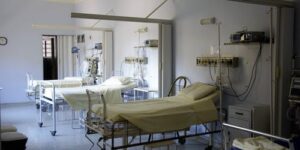BPH is the most frequent prostate gland condition in males aged 45 to 75 and urologists’ most common diagnosis. A man’s prostate may increase as he gets older. The prostate may press or squeeze the urethra as it expands in size because it surrounds it immediately at the bladder outflow. Urination problems include sluggish flow, the need to strain, increased frequency, the need to pee, incomplete bladder emptying, and intermittent flow or dribbling.
BPH Supportive Care
BPH in mild forms may not need medications or surgery. Here are a few tips for dealing with BPH.
Drinks to Avoid
Avoiding drinks that cause you to urinate more often is one strategy to cope with it. Coffee and alcohol are the primary culprits, so cutting down on these might make a huge impact. Limit yourself to two quarts of fluids per day or less, and drink less after supper.
Bladder Exercise
Dribbling, leaking, and a sensation of urgency are all signs of BPH, in addition to urinary frequency. Kegel exercises might help you ease these sensations by tightening the muscles around your bladder neck. Kegels are performed by clenching and holding for 10 seconds the muscles that prevent you from peeing. Then relax your muscles and perform the exercise ten more times. Practice these exercises three to five times a day to improve your bladder control.
Meal Plan
Prostate health may be aided by eating nutritious meals. It is suggested that you eat a diet rich in fruits, vegetables, soy products, and green tea. Having enough omega-3 fatty acids may also be beneficial. Consuming saturated and trans fats is harmful.
Medications Avoided
Several over-the-counter cold and allergy drugs have been shown to aggravate BPH symptoms. Both decongestants and antihistamines have the potential to make it difficult to urinate. BPH may be exacerbated by a number of prescription drugs. It is possible that diuretics, used to treat high blood pressure, may make you pee more often. Antidepressants, on the other hand, may reduce the amount of urine produced. You can search “BPH waterloo” online, and talk to a urologist about treatment options to avoid dependency on medications.
Stress Reduction
Stress and anxiety might lead you to pee more often than BPH symptoms. You may be able to escape this pattern by managing your stress. Daily exercise is one of the most effective stress and BPH treatments. Some of the stress-reduction strategies that may be employed include meditation, yoga, and concentrated breathing. Search for “Rezum treatment near me” on the internet for convenient and stress-free procedures.
Finally
If you wait too long to seek medical treatment, you may require surgery. You have probably put off getting treatment for too long if you cannot pee when you need to, have frequent urinary tract infections, or have bladder stones. Are you looking for the newest BPH treatment? Dynamiq Urology presents new enlarged prostate procedure. If your BPH symptoms have become too severe to handle on your own, it is time to see a doctor.
